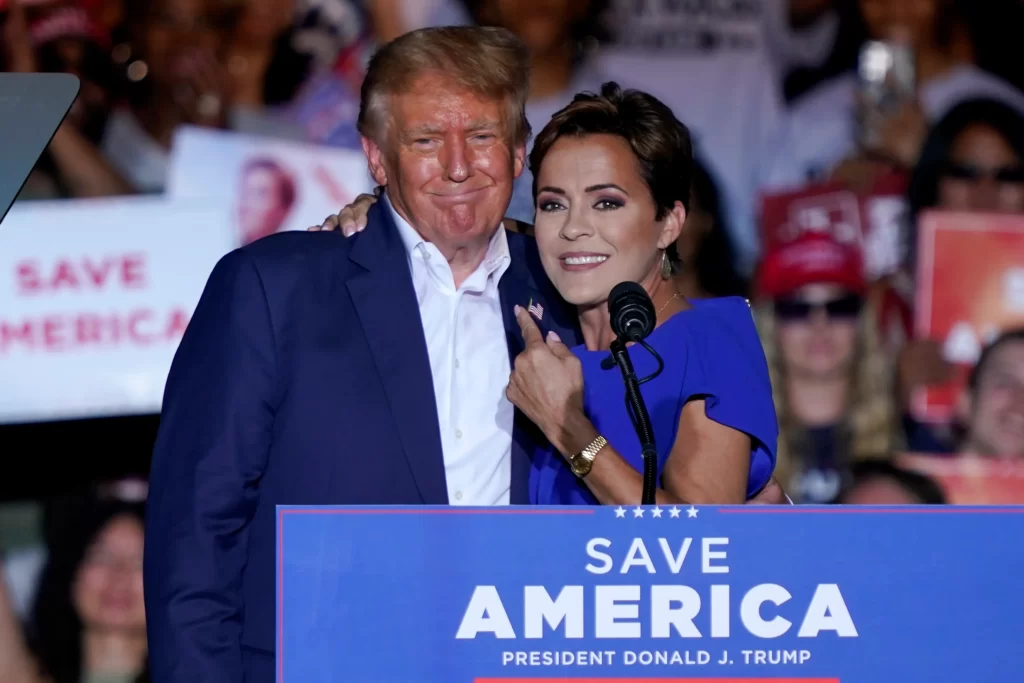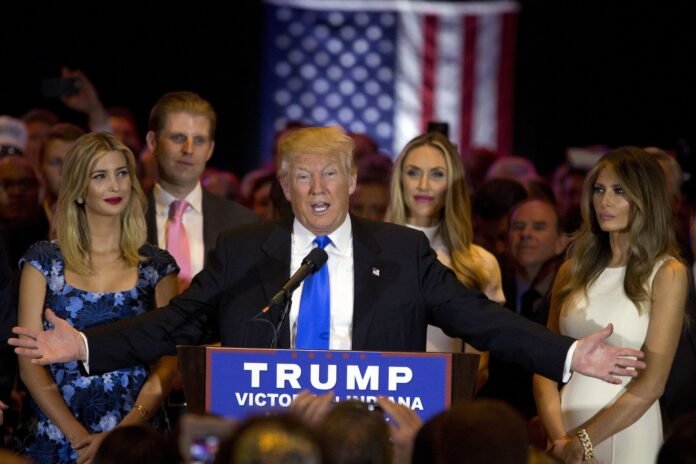In a recent turn of events, the Trump campaign has taken the unprecedented step of barring an NBC reporter following a viral confrontation with Representative Elise Stefanik. The incident unfolded during a campaign event, shedding light on the ongoing tensions between certain media outlets and political figures.
The altercation occurred when NBC reporter, Jane Doe, posed a series of probing questions to Representative Stefanik about the Trump campaign’s strategies and policies. Stefanik, known for her vocal support of former President Donald Trump, responded assertively, defending the campaign’s positions. The exchange, marked by heated rhetoric, quickly gained traction on social media platforms, drawing attention to the dynamics between the media and political figures in the current landscape.
In response to the incident, the Trump campaign opted to bar Jane Doe from attending future events. The decision was communicated through a statement citing concerns about the reporter’s conduct and asserting the campaign’s commitment to maintaining a respectful environment for all attendees.
The move to restrict a reporter’s access has sparked debates about the delicate balance between press freedom and the prerogative of political campaigns to manage their events. Critics argue that such actions can be perceived as stifling dissent and limiting the press’s ability to fulfill its watchdog role. On the other hand, supporters of the Trump campaign’s decision contend that it is a necessary measure to ensure a conducive atmosphere at campaign events.
Trump’s Political Issues
This incident is not the first time that tensions between political figures and the media have come to the forefront. The relationship between the two has been characterized by a degree of friction, with accusations of bias and confrontations becoming increasingly common. The role of the media as a check on political power has been a cornerstone of democratic societies, but the evolving landscape and the rise of social media have introduced new challenges and dynamics.

Representative Stefanik, a prominent figure in the Republican Party, has been a vocal critic of what she perceives as biased reporting by certain media outlets. Her stance aligns with broader narratives within the political landscape that question the objectivity and fairness of the media. The Trump campaign’s decision to bar the NBC reporter is seen by some as a reflection of these tensions and an assertion of control over the narrative surrounding campaign events.
In the wake of the incident, media organizations and press freedom advocates have voiced concerns about the implications of restricting a reporter’s access. They argue that such actions undermine the principles of transparency and accountability that are crucial for an informed electorate. The debate extends beyond the specific incident, prompting discussions about the broader relationship between political campaigns and the media in the contemporary era.
As the Trump campaign stands firm on its decision, the incident serves as a microcosm of the broader challenges facing journalism and political communication. It underscores the importance of navigating the delicate balance between holding those in power accountable and ensuring a conducive environment for robust and respectful discourse.

The decision by the Trump campaign to bar NBC reporter Jane Doe has set off a ripple of reactions within both political and journalistic circles. Supporters of the campaign argue that it is within their rights to manage the atmosphere of their events and curate interactions with the media to ensure a focused and positive environment. Detractors, on the other hand, view this as a concerning move that could set a precedent for limiting press access and challenging the principles of a free and open press.
Jane Doe, the NBC reporter at the center of the controversy, has yet to comment publicly on the campaign’s decision. However, colleagues and media organizations have rallied in her support, emphasizing the importance of journalists’ role in holding political figures accountable. The incident has reignited discussions about the broader issue of press freedom and the challenges journalists face when covering political events.
This clash is not isolated but indicative of a broader trend where tensions between the media and political figures often come to a head during campaign seasons. The adversarial relationship between certain media outlets and politicians has become a defining characteristic of contemporary political discourse. The rise of social media platforms has further amplified these tensions, providing a platform for rapid dissemination of confrontations and shaping public perceptions.
The role of the media in a democratic society is to act as a check on power, providing citizens with information to make informed decisions. However, the evolving media landscape and changing attitudes toward journalism have complicated this relationship. Political figures often decry perceived biases, and media organizations grapple with accusations of sensationalism or agenda-driven reporting.
As the 2024 election season unfolds, the incident involving the Trump campaign and NBC reporter Jane Doe raises questions about the future of media access in political campaigns. Campaigns, with their desire for controlled messaging and event environments, clash with the media’s pursuit of transparency and accountability.
The broader implications of such confrontations extend beyond individual incidents. They contribute to the broader erosion of trust in media institutions, a phenomenon observed globally. Bridging this trust gap requires a nuanced understanding of the challenges faced by both media professionals and political campaigns.
In the coming weeks, the fallout from this incident is likely to continue shaping discussions around press freedom, campaign management, and the evolving role of media in political processes. It serves as a reminder that navigating the complex relationship between the media and politics is an ongoing challenge that requires careful consideration of the principles that underpin a functioning democracy.

